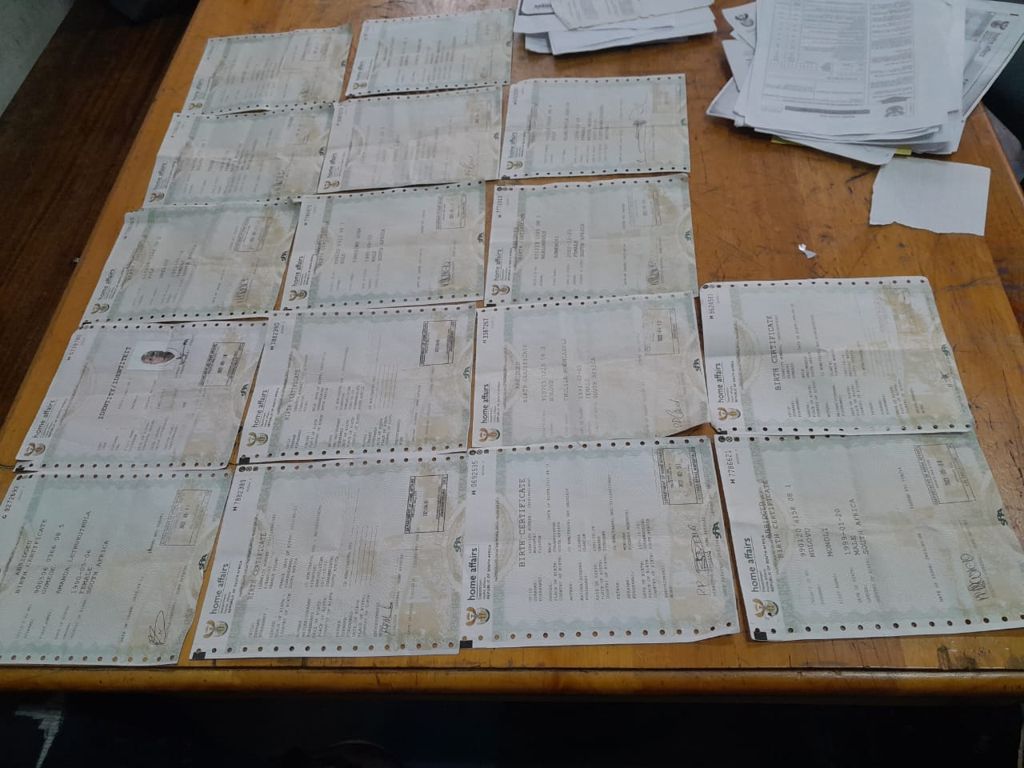The recent arrest of three individuals involved in a document forgery syndicate, operating in Johannesburg’s central business district, has brought to light the severity of the issue of document forgery. The suspects were caught red-handed, producing counterfeit documents such as birth and death certificates, university degrees, and fake identity documents.
The Syndicate’s Operations
Operating out of a flat in Marshalltown, the syndicate had been unlawfully producing a range of fake documents, which could have been used for various criminal activities. The fraudulent paperwork included falsified death and birth certificates, along with other home affairs-related documents.
The Implications of Document Forgery
Counterfeit documents can be used to commit a range of illegal activities, including identity theft, financial fraud, and even terrorism. Document forgery’s impact on society can be devastating, as it undermines the integrity of personal documents that serve as the foundation of modern civil society.
The Arrest and Seizure of Counterfeit Documents
Acting on a tip-off, police raided the premises of the syndicate and discovered five men actively using laptops and desktop computers to print counterfeit documents. In addition to the fraudulent paperwork, authorities also seized green Identity Documents marked as “deceased,” passports, and temporary ID documents. All five suspects, aged between 39 and 50, were arrested and now face charges of fraud, corruption, and bribery.
The Broader Issue of Document Forgery
The issue of document forgery is not limited to Johannesburg or South Africa. In recent years, there have been numerous reports of similar criminal activities worldwide – from fake diploma mills in the United States to counterfeit passport rings in Europe. The interconnected nature of global society means that the impact of document forgery can be felt far beyond the borders of a single country.
Addressing the Issue
To combat this criminal activity effectively, it is crucial to invest in advanced technologies and improved security measures that make it increasingly difficult for criminals to create and distribute counterfeit documents. Furthermore, international cooperation and information sharing between law enforcement agencies will play a critical role in dismantling these criminal networks and bringing those responsible to justice.
The Johannesburg police’s recent uncovering of a fraudulent document syndicate highlights the broader issue of document forgery and the potential consequences it can have for society. By continuing to invest in efforts to combat this criminal activity, authorities can help maintain the integrity of personal documents and the overall security of society.








